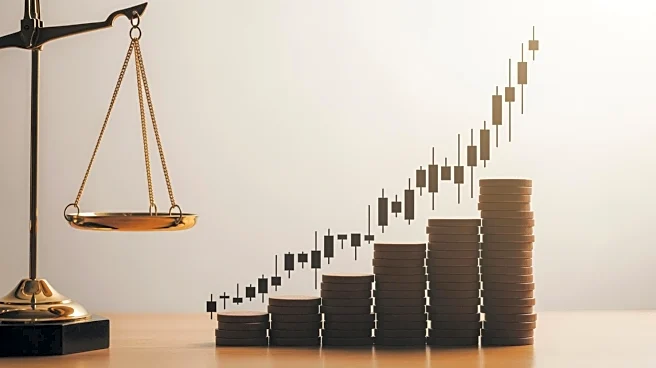What's Happening?
The Supreme Court is reviewing the legality of tariffs imposed by President Trump under the International Emergency Economic Powers Act. Justices expressed skepticism about the administration's argument
that tariffs are not taxes, with Justice Sonia Sotomayor highlighting their revenue-generating nature. Justice Neil Gorsuch questioned the executive power used to impose these duties without congressional approval. The stock market responded positively, with the Dow closing up 200 points, as investors anticipate potential tariff rollbacks. Wells Fargo identified stocks that could benefit from refunds, including Caterpillar, Nike, and Best Buy, which have underperformed due to tariff impacts.
Why It's Important?
The Supreme Court's decision on the tariffs could have significant implications for the U.S. economy and stock market. A ruling against the tariffs may lead to refunds, providing relief to companies affected by increased costs and boosting investor confidence. This could stimulate economic activity and improve market conditions, particularly for industries reliant on international trade. The case also raises questions about executive authority and the balance of power between the presidency and Congress, potentially influencing future policy decisions and trade negotiations.
What's Next?
A decision from the Supreme Court is expected in the coming months, with potential refunds taking several months to process. Investors and companies are closely monitoring the situation, as a favorable ruling could lead to substantial financial gains for affected stocks. The outcome may also prompt legislative discussions on trade policy and executive powers, influencing future tariff implementations and international economic relations.










